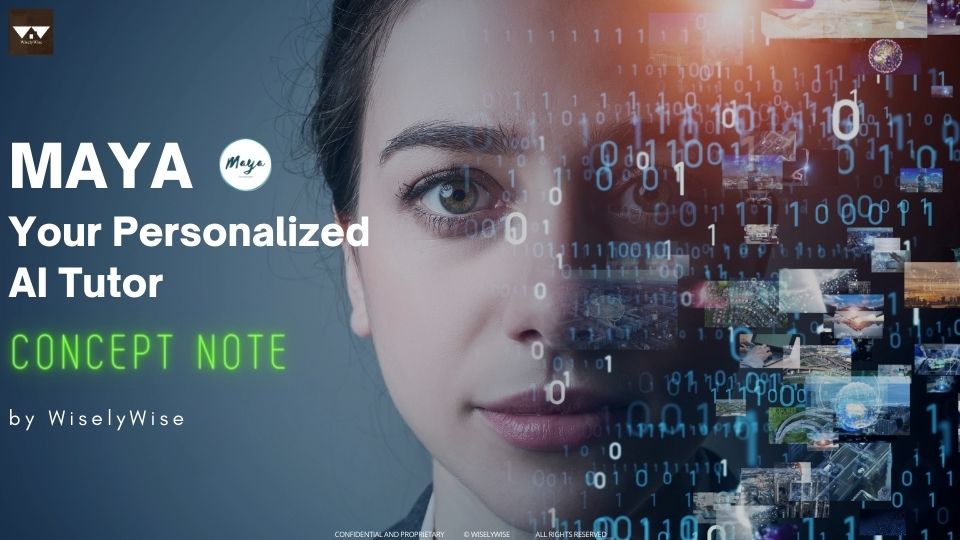
Concept Note on Maya AI Tutor
by Chandra Kumar | Nov 3, 2023 | AI, ai tools for teachers, Artificial Intelligence, Education & Skilling, Maya AI CoPilot, Thought Leadership
Concept Note Maya AI Tutor
Executive Summary
Maya, our revolutionary AI-powered tutor, is poised to reshape the educational landscape. This concept note outlines our strategy to harness the power of AI to transform learning and teaching. We aim to achieve a more personalized and efficient education system, ultimately enhancing learning outcomes.
Background: Concept Note Maya AI Tutor
Over the years, we’ve witnessed several digital revolutions, from personal computers to the growth of the internet, the advent of social media, and the prevalence of mobile computing. These transformations have rapidly altered the way we live, teach, and learn, causing us to spend more time in digital realms than in offline interactions.
Now, the stage is set for another revolution, one that may eclipse its predecessors in significance: the AI revolution. AI, powered by synthetic neural networks and large language models, is making strides in simulating complex human-like conversation, a domain once solely within the purview of human beings. This shift forces us to reconsider the foundations of our education systems.
These developments pose fundamental questions for education. What role will educators play in a world where AI tools are ubiquitous? How will assessments evolve in the face of AI’s ability to excel in examinations? As generative AI increasingly bridges the gap between human and machine intelligence, our education systems must adapt. What skills, perspectives, and competencies should we cultivate in students as human and machine intelligence become more intertwined? We find ourselves at a juncture where education should take center stage in shaping our response to these transformative technologies.
With this growing presence of AI in education, WiselyWise is actively engaged in developing Maya, a Teacher & Student-focused Generative AI Tutor. Maya enriches rather than replaces human educators and fosters an equitable, learner-centric, and impactful learning experience.
Purpose : Concept Note Maya AI Tutor
Maya serves as a revolutionary AI-powered tutor designed to usher in a transformative paradigm in education. With a primary focus on enhancing the learning and teaching experience, Maya alleviates educators’ workload, promoting a healthier work-life balance, while empowering them to excel in the classroom. For students, Maya stands as a guardian against academic failure, offering an interactive, multi-modal learning environment where students can explore subjects through various content formats. It further encourages mastery by providing tools for experimentation and practice, prepares students for future endeavors, and ensures their privacy and confidentiality in a secure, practice-oriented space. Maya’s overarching purpose is to reshape traditional education methods, creating a more efficient and effective learning environment.
Product Description
Maya, our groundbreaking AI-powered educational platform, represents a transformative leap in the realm of personalized learning and teaching. Designed to reshape the way we educate and learn, Maya caters to the distinct needs of both students and educators. Maya leverages cutting-edge technologies, including generative AI and large language modeling. It functions as an intelligent assistant for both educators and students. By generating tailored teaching materials, Maya alleviates teachers’ workload and offers personalized learning experiences for students.
Maya is not just a conventional educational tool; it’s a paradigm shift in the world of learning and teaching. With its adaptive capabilities, immediate feedback loops, and the power to free educators from administrative burdens, it’s a multifaceted solution that stands to redefine traditional educational methods. Maya empowers students to reach their full potential and gives educators the tools they need to excel in nurturing the leaders of tomorrow.
Objectives
Maya is designed to enhance the quality of education, improve learning outcomes, and support educators in their roles.
- Enhance Educational Quality: Maya aims to elevate the quality of education by providing engaging and personalized learning experiences.
- Improve Learning Outcomes: Our objective is to deliver tangible improvements in student learning outcomes by offering personalized learning paths and instant feedback.
- Support Educators: We strive to provide substantial support to educators through AI-generated teaching materials and lesson plans, reducing their administrative workload, and empowering them to excel in the classroom.
- Promote Inclusivity: Maya aims to be accessible and beneficial to a diverse range of learners, educators, and parents, fostering inclusivity in education.
- Enhance Efficiency: We aim to streamline the educational process, making lesson planning, resource creation, and knowledge assessment more efficient.
- Foster Lifelong Learning: Our goal is to create a culture of lifelong learning, offering resources for continuous self-improvement and career development.
Target Audience
Maya caters to a diverse set of users, including teachers, and students across grades globally. Maya is tailored to meet the specific needs of each group, creating more engaging and effective experiences.
Key Features
Maya offers innovative features that redefine educational experiences. These include AI-driven lesson planning and resource creation, multi-modal learning resources, and support for students preparing for exams and assessments. These features empower educators and students alike.
- Personalized Learning Paths: Maya tailors learning experiences for each student, recognizing their unique strengths and weaknesses, and adapting content to maximize comprehension and engagement. For educators, this means a more detailed understanding of individual student progress.
- Instant Feedback: Maya provides immediate feedback on assignments and assessments, offering actionable insights to both students and educators for continuous improvement. This feedback loop enhances the teaching and learning process.
- AI-Generated Teaching Resources: Maya creates high-quality teaching materials, lesson plans, and practice exercises, saving educators valuable time and ensuring the delivery of effective lessons. Teachers benefit from real-time AI-generated resources that align with curriculum standards.
- Multi-Modal Learning: Our platform offers a variety of learning resources, including text, videos, images, sound, and more, to accommodate diverse learning styles and preferences, making it easier for teachers to reach all students effectively.
- Virtual Labs and Practice Tools: Students can experiment and practice what they’ve learned through virtual labs, simulations, and interactive exercises, fostering a deeper understanding of subjects. Educators can use these tools to create engaging and hands-on learning experiences.
- Preparation for Job Interviews and Exams: Maya equips students with resources for excelling in job interviews, competitive exams, and assessments, helping them build confidence and readiness for future endeavors. For educators, this means better preparing students for real-world challenges.
- Accessible and Inclusive: Designed with accessibility in mind, Maya ensures that all learners, regardless of their abilities, can benefit from its features, fostering inclusivity in education. Teachers can deliver more inclusive lessons, catering to the diverse needs of their students.
- Streamlined Educational Workflow: Maya simplifies educational processes, from lesson planning to resource creation, making teaching and learning more efficient. Teachers experience reduced administrative burdens, allowing them to focus more on teaching.
- Continuous Improvement and Updates: We are committed to regular updates and enhancements, incorporating the latest educational best practices and AI advancements to continually improve Maya for both students and educators.
Expected outcomes
- Teacher’s Best Friend: For educators, MAYA is a lifeline to achieving a healthier work-life balance. It substantially reduces the stress and workload related to lesson planning and other routine tasks, helping teachers avoid burnout.
- Enhanced Teaching Efficiency: With MAYA, educators have the opportunity to excel more by focusing on what they do best – teaching. It instantly generates high-quality teaching resources tailored to their needs, allowing them to excel in the classroom.
- Student-Centric Learning: For students, MAYA is all about avoiding failure. It offers a fun and interactive learning experience with multi-modal options like text, video, images, sound, and more. There are no restrictions on how students can explore and learn, leading to increased engagement, better understanding, and improved academic performance.
- Mastery Through Practice: MAYA empowers students to become masters in their chosen subjects. It provides tools and virtual labs for students to experiment and practice what they’ve learned, with instant feedback and the ability to save and download their creations.
- Success Preparation: Students can use MAYA to prepare for job interviews, competitive exams, and assessments. It offers practice resources, including MCQs, in a secure environment that respects their privacy and confidentiality.
- Equitable Education: By providing access to high-quality, personalized learning resources, Maya will contribute to more equitable education, reducing disparities in learning outcomes and opportunities.
Implementation
Rolling out Maya requires a well-defined implementation strategy. Do contact us to understand in detail our plan for introducing Maya into the education system, including potential partnerships with educational institutions and organizations.
Maya’s implementation process is designed to be collaborative, flexible, and responsive to your institution’s needs. Our goal is to ensure a smooth and successful integration, with ongoing support and optimization to maximize the benefits of Maya in your educational environment.
Conclusion: Concept Note Maya AI Tutor
In summary, Maya holds the potential to revolutionize education by providing a more personalized and efficient learning experience. We encourage support and collaboration from relevant stakeholders to make this vision a reality.
Contact information
Founder & CEO
WiselyWise Singapore
Email: cxo@wiselywise.com
WhatsApp/Mobile: +65-8268 4140
#Maya #Education #EdTech #Teachers #Educators #LearningRevolution #ai #artificialintelligence #students #learning #classroom

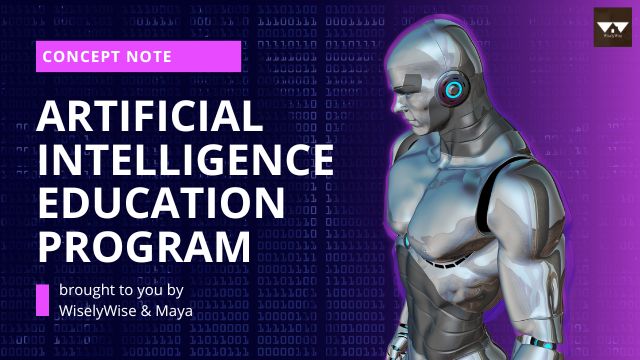

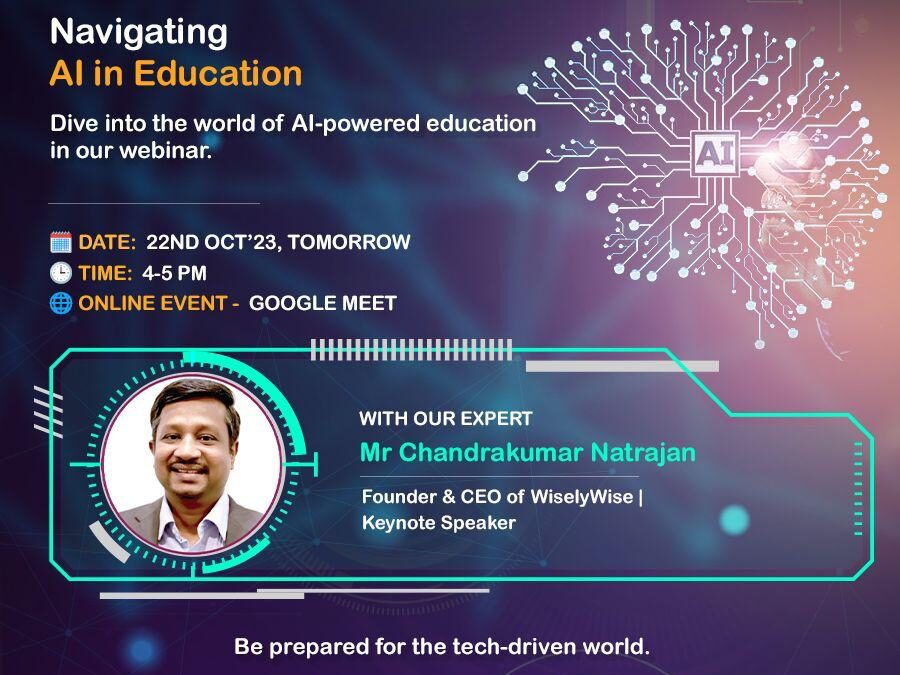
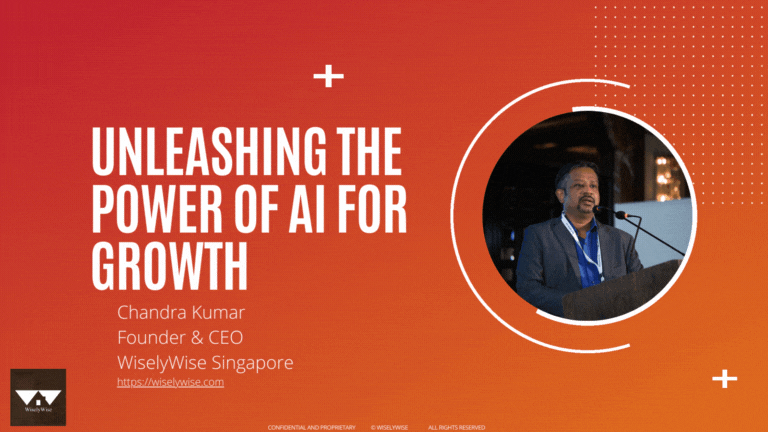
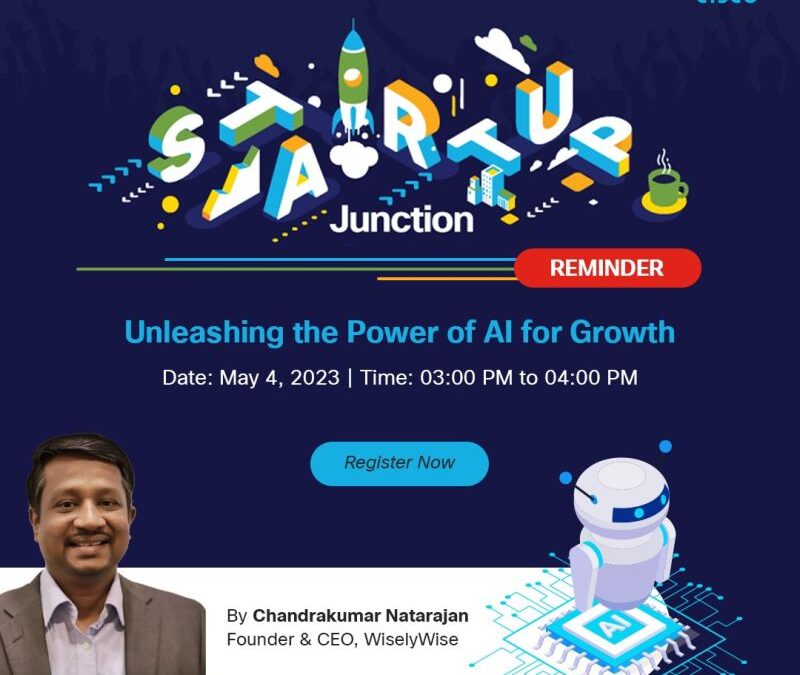
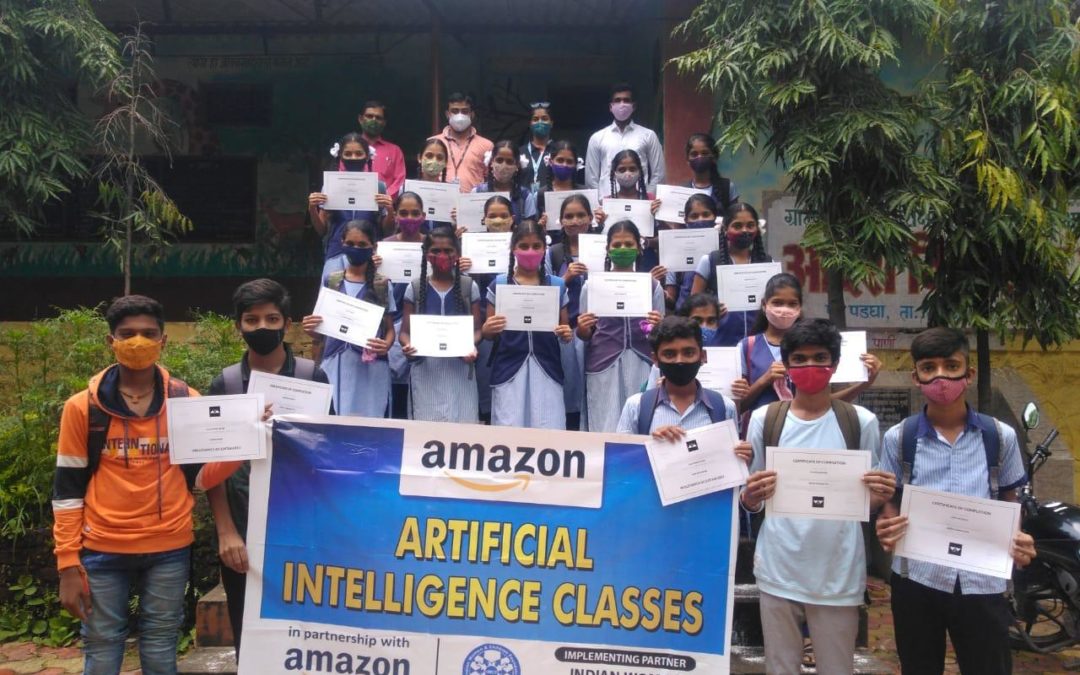
Recent Comments